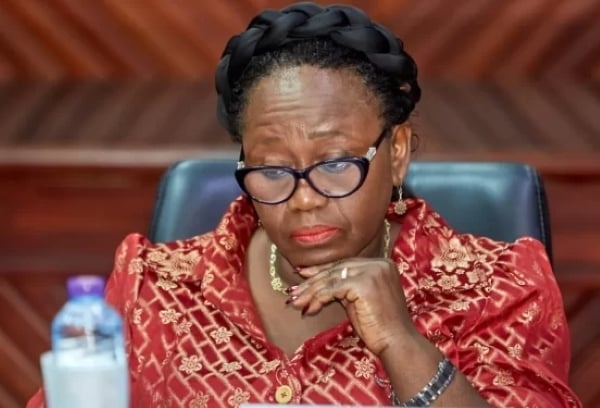The Supreme Court of Ghana has navigated a complex legal landscape in the case of Chief Justice Gertrude Sackey Torkornoo, who is facing impeachment proceedings. The Court’s recent rulings on preliminary matters have shaped the trajectory of the case, highlighting the delicate balance between transparency and confidentiality in judicial disciplinary processes, as well as clarifying the criteria for determining the appropriate parties to such legal challenges. The core issue revolves around the Chief Justice’s application for an injunction to suspend the impeachment proceedings pending the determination of the substantive legal challenge she has mounted against the process itself.
The Court’s first significant ruling addressed the admissibility of certain aspects of Chief Justice Torkornoo’s affidavit supporting her injunction application. Deputy Attorney-General Dr. Justice Srem-Sai objected to portions of the affidavit that detailed discussions from the in-camera sessions of the committee investigating the allegations against the Chief Justice. The Court upheld this objection, ruling that the inclusion of such information violated Article 146(8) of the Constitution, which mandates the confidentiality of these proceedings. This decision underscores the importance of maintaining the integrity and privacy of the impeachment process, safeguarding the reputations of all parties involved until a final determination is reached. By striking out these portions of the affidavit, the Court reaffirmed its commitment to upholding the constitutional framework governing judicial disciplinary procedures.
The second key ruling concerned the Attorney-General’s attempt to exclude the members of the investigative committee from the injunction suit. The Attorney-General argued that these individuals – Justices Gabriel Pwamang, Samuel Adibu-Asiedu, Daniel Domelevo, Major Flora Bazwaanura Dalugo, and Professor James Sefah Dzisa – were not directly affected by the outcome of the injunction application and therefore should not be considered parties to the suit. This argument, however, failed to persuade the Court. Chief Justice Torkornoo’s legal counsel, former Attorney-General Godfred Yeboah Dame, argued that the relevance of a party to a suit is determined by whether claims or reliefs are sought against them, not by whether they will be personally affected by the outcome. The Court concurred with this interpretation, emphasizing that the committee members were named in the reliefs sought by the Chief Justice, thereby establishing their standing as respondents in the case.
The Court’s decision to retain the committee members as parties to the suit highlights the principle that those tasked with carrying out a process under legal challenge must be included in the proceedings addressing that challenge. This ensures that all perspectives and legal arguments are considered before a decision is reached, contributing to a more comprehensive and just outcome. The Court’s ruling on this point signifies a clear articulation of the criteria for determining the appropriate parties in legal challenges to official processes. It underscores the importance of procedural fairness and ensures that all relevant stakeholders have the opportunity to present their arguments before the court.
The underlying tension in this unfolding legal drama lies in the balance between the Chief Justice’s right to due process and the need to maintain the integrity of the judicial impeachment process. By carefully scrutinizing the evidence presented and upholding constitutional provisions, the Court is navigating this complex terrain with an emphasis on both procedural fairness and the confidentiality of sensitive proceedings. The striking out of portions of the affidavit underscores the Court’s commitment to safeguarding the sanctity of the impeachment process while simultaneously acknowledging the Chief Justice’s right to challenge the legality of the proceedings against her.
The ongoing proceedings hold significant implications for the future of judicial accountability and the rule of law in Ghana. The Supreme Court’s handling of the preliminary objections demonstrates its dedication to upholding the principles of due process and constitutional adherence. As the case progresses, the Court’s decisions will undoubtedly shape the understanding of judicial impeachment processes and the rights of those subject to such proceedings. The rulings thus far have laid the groundwork for a comprehensive examination of the substantive legal issues at the heart of the Chief Justice’s challenge. The final outcome will undoubtedly set a precedent for future cases involving high-ranking judicial officials and will have a lasting impact on the relationship between the judiciary and the other branches of government.


